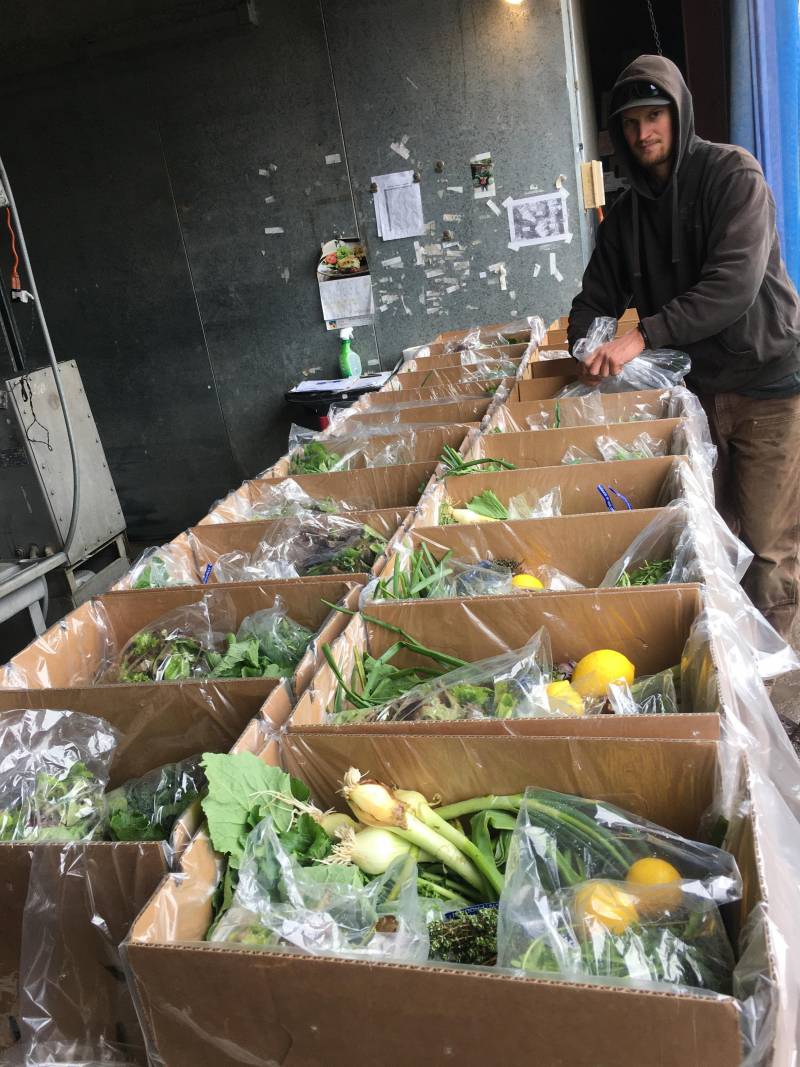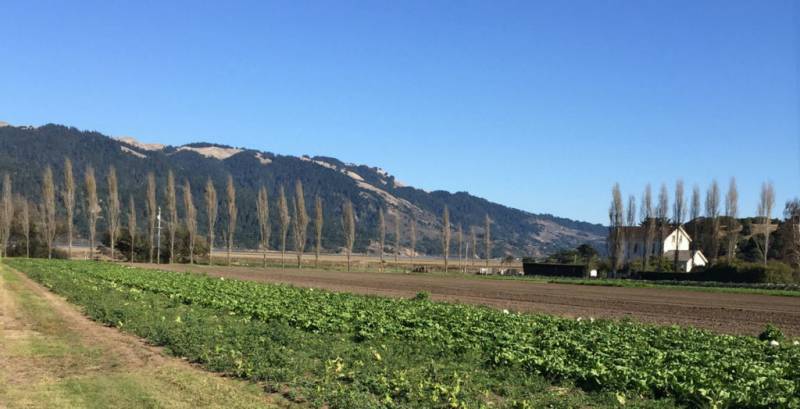When the statewide shelter-in-place order shuttered many restaurants in the Bay Area, Annabelle Lenderink panicked. She manages Star Route Farms, which grows a variety of vegetables in West Marin and the Coachella Valley. Nearly all of the restaurant sales the 40-acre farm depends on evaporated overnight.
“It was just really gone, you know, nothing,” Lenderink said.
Normally, local restaurants buy 80% of the lettuce, vegetables and herbs that Star Route grows. The rest goes to farmers’ markets.
Farms like Star Route, which depend heavily on sales to restaurants, have been forced to find new sales outlets overnight. Some are leaving crops on the vine to rot rather than spend time and money harvesting.
“A lot of them lost up to 100% of their sales outlets almost overnight,” said Evan Wiig, director of membership and communications at the Community Alliance with Family Farmers.
The COVID-19 pandemic upended farmers’ expected sales at outlets up and down the state. The fact that farmers deal with perishable products compounds the problem, Wiig said.

“You can’t just put a cork in it and hope for a better time,” Wiig said.
Mike Iacopi, owner of Iacopi Farms outside Pescadero, grew up farming and never looked back. He grows peas and beans, both dry and fresh, on 200 acres. He dry farms half of that, meaning there is no irrigation. Sales to San Francisco restaurants like Delfina and Lazy Bear accounted for about 50% of his business before the COVID-19 crisis forced those businesses to dramatically reduce their operations.
This time of year, Iacopi expects to sell 300 boxes of English peas, favas and sugar snaps to restaurants each week. This year, he’s selling about 40 boxes a week. Farmers markets have held steady, but he depends on restaurants to move his product in big volumes. “When you have a bumper crop and no place to distribute them, it’s kind of a slap in the face,” Iacopi said. For now, he is only harvesting what he thinks he can sell.
“The rest is just rotting on the plants,” Iacopi said.
Further south, Will Brokaw grows avocados, kiwis, guavas and a variety of citrus on two ranches, one Santa Paula and one in Soledad. His restaurant business dropped by 90%, and while farmers market sales have picked up, he estimates the farm has lost about 50% of its revenue since mid-March. Now, he is deciding whether to harvest lemons and mandarins or leave them on the tree to rot.
To deal with the reduction in restaurant sales, Star Route Farms made a swift transition to assembling produce boxes and distributing them to between 16 and 18 sites per week. A16, a restaurant with locations in San Francisco and Oakland, is among the usual restaurant clients now selling Star Route Farms produce boxes to customers.
Support from the University of San Francisco, which owns the farm, eased the transition. The university distributes produce boxes on its campus and built a website so Star Route could process online orders.
Some of the restaurants that normally buy produce for their kitchens started selling the boxes, too, and Lenderink told her customers at farmers markets about them.
